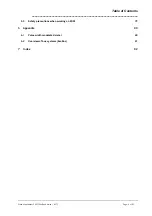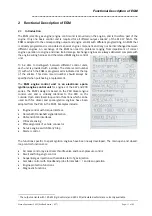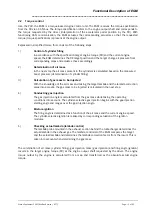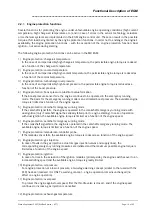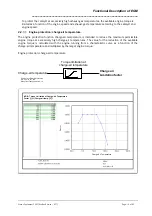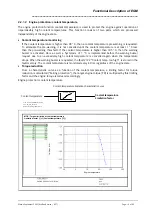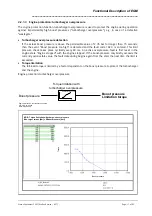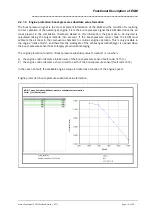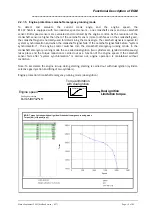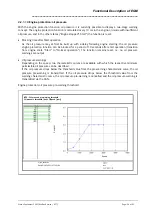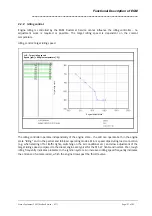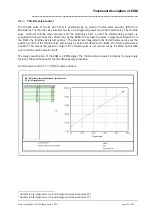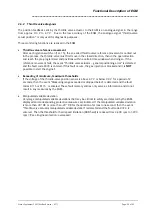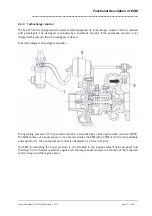
Functional Description of EGM
_____________________________________________________________________
Status September 2003 (EvoBus-Service / AFT)
Page: 18 of 83
2.2.1.4
Engine protection: boost-pressure substitute value formation
The boost-pressure signal is the most important information of the EGM and the condition for realising
correct operation of the natural gas engine. From the boost-pressure signal the EGM determines the air
mass present in the combustion chambers. Based on this information, the gas mass to be injected is
calculated taking the target lambda into account. If the boost-pressure sensor fails, the EGM must
estimate the air mass in the combustion chambers to continue engine operation. This is only possible in
the engine "intake mode", and therefore the wastegate of the exhaust-gas turbocharger is opened when
the boost-pressure sensor fails to largely prevent turbocharging.
The engine protection function: "Boost-pressure substitute value formation" is run when:
a)
the engine control detects a broken wire of the boost-pressure sensor (fault code: 1415) or
b)
the engine control detects a short-circuit to earth of the boost-pressure sensor (fault code 1416)
In the case of a fault, the available engine torque is limited as a function of the engine speed.
Engine protection: boost-pressure substitute value formation
MOB - Torque limitation with boost-pressure substitute value formation
Factor [-] = f(Speed [rpm])
Li
mi
tati
on factor
Speed



